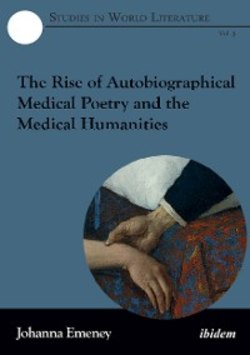Читать книгу The Rise of Autobiographical Medical Poetry and the Medical Humanities - Johanna Emeney - Страница 8
Critical Perspectives The writing of doctor-poets in the UK and the USA has, generally, been received very well by critics, the democratic and revelatory aspects of the doctors’ writing pin-pointed for especial praise. For example, Joseph Cohen (1983) observes of Dannie Abse’s poetry that “The poems deriving from Abse’s experience as a practising physician are increasingly powerful […] and Abse’s medical practice is to his poetry […] what trench warfare was to Wilfred Owen’s poetry” (33).
ОглавлениеIn a similar vein, reviewer Heather A. Burns (2008) writes of Rafael Campo’s multi-voiced poems, which often feature both the first-person doctor’s point-of-view and his patients’ voices: “we come to see that for him, writing a poem is an act of humility and service, just as healing is. Both practices rely on the power of narrative itself; no poem or story is owned by one person” (437).
Critics and reviewers admire the perceived honesty of the doctors’ accounts of their workdays; the ways in which they share the ordinary and the extraordinary, not forgetting the ever-present air of the mystical about their role. Burns explains with reference to Campo in his fifth collection, The Enemy (2007): He has awe for the mysterious and a familiarity with despair, and he catches frequent hints of God’s presence. In this book, there are tiresome days in the clinic and patients who are near death but who will not die (Burns 2008, 438).
It is interesting, though, that Abse, a way-shaper for many future doctor-poets, who had experience in the medical humanities during its nascence (both in terms of his understanding of it, and in terms of his own involvement in teaching on American programmes that involved its precepts and those of narrative medicine) did receive a few reviews of the early medical poems which suggested that his craft was not commensurate to the potent emotionality of their subject matter: “the emotion here is impeccable, but the poetry does not quite rise to become its equal,” says Bruce Whiteman (n.d., par. 10). Similarly, in a review of Way Out in the Centre, the poet Douglas Dunn (1981) was critical of Abse’s “tendency to over-relax; while his easy manner contributes to a distinctly readable verse, it detracts from a complete seriousness” (par. 6). Dunn, himself, published a book of personal medical poems in the same year (1981) called Elegies, about the loss of his wife to cancer. His style in this book was described as being “accessible and direct” (Lyon 1990, 47).
Dunn’s remarks regarding the “relaxed” or “easy manner” of Abse’s writing about personal medical experience typify those usually aimed at poets who are not also doctors. These poets are usually “lay poets” doing what Dunn chose to do: to write poems about relatives who were experiencing illness. Just a cursory search of reviews for poets who have written recent medical poems will turn up a few such reviews and critiques. For example, British poet Hugo Williams’s I Knew the Bride (2014) featuring a series called “From the Dialysis Ward”, about the poet’s experience of kidney failure and its treatment, received reviews that questioned its ratio of craft to emotive confession: “while many of the individual dialysis poems are unflinching and unforgettably harrowing, the bleak subject matter narrows rather than widens Williams’s stylistic options” (Kelly 2014, par. 23).
Williams’s long history of using (and reusing) material that is autobiographical as the catalyst and basis for his poetry may be one reason for Robert Potts’s famous complaint that he is a “one-club golfer […] a charming and stylish prose writer [whose) poems don’t think hard [nor] encourage anyone else to” (quoted in Kelly 2014, par. 13). Also interesting here is the notion of less formalist poetry being questionable poetry; poetry that has prose-like elements being inferior to that which adheres to a distinctly taut aesthetic (as did Williams’s first collection Symptoms of Loss (1965), which was very much in the style of his idol Thom Gunn).
It is apt to say that Williams’s books are personal. It is not something the poet denies. Writing Home (1985), for example, is a homage to Williams’s father, an accomplished actor, as well as being an account of Williams’s boarding-school days; Billy’s Rain (1999) is about an extra-marital affair to which Williams has admitted. Dear Room (2006) charts the end of the affair. Regarding I Knew the Bride, therefore, one reviewer feels justified in asking, “The last 16 poems in the collection are dispatches From The Dialysis Ward. Is this God’s perverse way of keeping the poet supplied with fresh material?” (Taylor 2014, par. 6).
The general rule appears to be that unless a writer of self-referential medical poetry is without a history of confessionalism in his or her previous work, and he or she makes it particularly clear in interviews that “I’m not an autobiographical poet in that sense; I’m not someone chasing her own ambulance” (Jo Shapcott quoted in Crown 2010, par. 6), charges of emotionality weighing heavily against stylistic concerns can fairly be found in a number of reviews and critiques.
